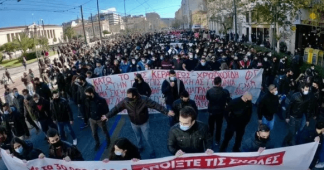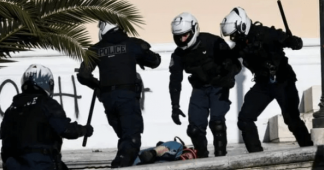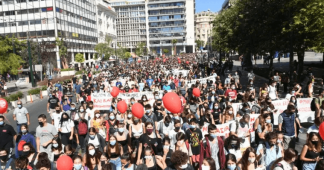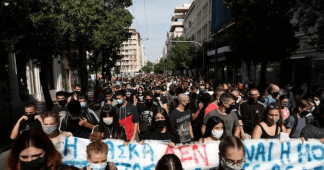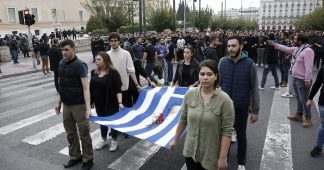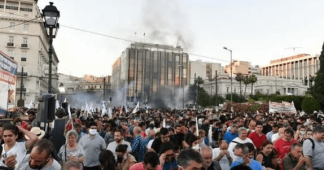February 12, 2021
Greek lawmakers passed legislation on Thursday that allows special police on university campuses as part of education reforms that opponents say threaten academic freedom established after the end of military rule in the 1970s.
Defying coronavirus restrictions, thousands of people rallied in central Athens for a second day, as legislators debated the bill.
The legislation passed in the 300-seat parliament with 166 deputies voting in favor and 132 against.
Greek Prime Minister Kyriakos Mitsotakis said the reforms would end years of lawlessness at Greek campuses.
“Nowhere in the world do we see images … of historical buildings being vandalised, equipment being looted,” Mitsotakis told legislators before the vote, referring to numerous incidents in recent years where self-styled anarchist groups broke in and caused damage on Greek campuses.
The issue of police on campus has been especially sensitive in Greece since the 1967-1974 military government. During a 1973 student revolt that helped topple the junta, a tank crashed through the gates of the Polytechnic university, killing students.
Opponents of the law say state universities could hire more security staff and upgrade other safety measures instead of bringing in police.
Other measures in the bill limit the length of time students can stay enrolled before getting a degree. [Reuters]
PS Next to the special police issue, many aspects of the education bill are questionable from the beginning to the end. Among them, are the reduction of uni entrance rates for working students and those with disabilities that cuts access to higher education for thousands of young people – unless they have money to pay for private colleges. It also establishes a Council to punish students.
However, “the measures, designed to curtail academic and political freedom in Greek universities,” as Education minister Niki Kerameos (at thmbnail picture) claimed during the parliament debate, did not touch serious and chronic problems of the Greek universities such as the “the dictatorship regime imposed by some professors who may would not allow students to pass exams for whatever -mostly personal or political- reasons” and the “power of students’ associations affiliated with political parties.”
The government propaganda during the bill debate went so far that state broadcaster ERT invited members of student organizations affiliated to New Democracy who speak in favor of the bill and the police presence. Interesting: ERT did not mark them as “association members” but only as “students.”
Published at www.keeptalkinggreece.com
